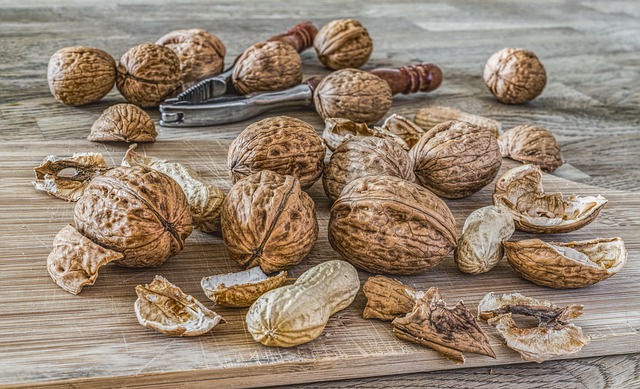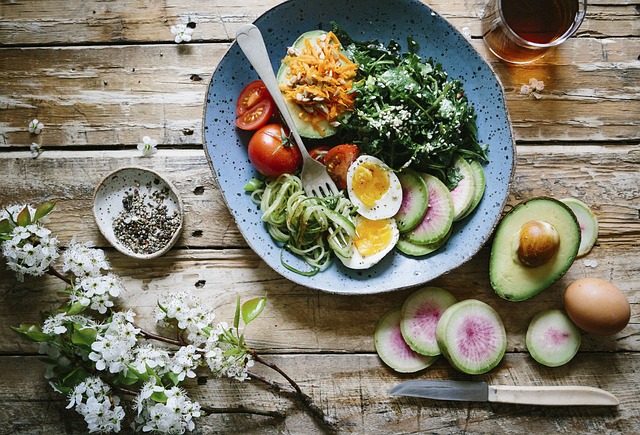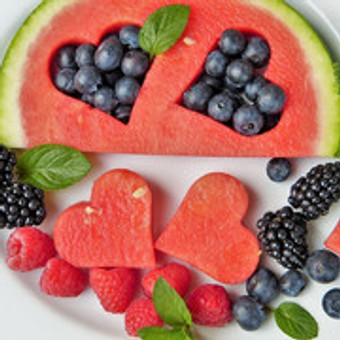Top 7 Foods To Improve Eyesight
Millions of people worldwide are affected by age-related macular degeneration and cataracts, which are often caused by oxidation and inflammation of the eyes. This is why good nutrition and a well-balanced & healthy diet has an important role in preventing eye diseases and improving your eyesight. Foods rich in the nutrients lutein and zeaxanthin can reduce the risk of chronic eye diseases. Also, foods rich in antioxidants are known to help protect the eyes from age-related macular degeneration (ARMD), the leading cause of blindness among older people. A diet rich in vitamins C and E, beta-carotene, zinc, and omega-3 fatty acids prevents age-related eye diseases. Other eye conditions that can be prevented with a healthy diet are glaucoma, dry eyes, and poor night vision.
You can create a balanced diet with a variety of proteins, fruits, and vegetables. Incorporating many types of foods in different colors into your diet is a good way to start fighting. Limiting the consumption of processed food that contains saturated fat and that is high in sugar also helps.
Here is a list of top 7 foods that can improve your overall eye health:
1. Broccoli and dark, leafy greens
 Broccoli and other leafy greens, like spinach and kale, are rich in vitamin C and cancer-fighting antioxidants - lutein and zeaxanthin. These two antioxidants are stored in macula, which is a part of the retina that behaves as a natural sunblock which in turn shields the eyes from harmful light. Lutein and zeaxanthin are especially good because they absorb blue light. Since these antioxidants are fat soluble, eating greens will help ensure that you absorb more of them. Bottom-line is that eating greens rich with antioxidants not only improves vision, it also maintains your vision long-term and can help fight cancer.
Broccoli and other leafy greens, like spinach and kale, are rich in vitamin C and cancer-fighting antioxidants - lutein and zeaxanthin. These two antioxidants are stored in macula, which is a part of the retina that behaves as a natural sunblock which in turn shields the eyes from harmful light. Lutein and zeaxanthin are especially good because they absorb blue light. Since these antioxidants are fat soluble, eating greens will help ensure that you absorb more of them. Bottom-line is that eating greens rich with antioxidants not only improves vision, it also maintains your vision long-term and can help fight cancer.
Broccoli if cooked can be added to omelets or pasta dishes and marinara sauces. Greens can be served raw in salads, green smoothies, and added to sandwiches. They can also be steamed with hot meals. However, be sure not to overcook them as they will lose some of their valuable nutrients.
2. Nuts

Almonds, peanuts, pistachios, and cashews all contain omega-3 fatty acids and are filled with vitamin E which protects the eye from free radical damage. This means that it helps protect cells in the body from oxidation, which may slow the progression of cataracts caused by UV exposure and decrease ARMD. They've also been known to help reduce dry eyes and eye disease as you age.
Nuts can be added to your breakfast cereal, yogurt, or salad. You can also enjoy them as snack by themselves. However, be careful with the amount of nuts you eat, since they are high in calories.
3. Fish
 Fish like salmon, anchovies, fresh tuna, mackerel, and trout are particularly filled with omega-3 fatty acids that can be found naturally in the retina. Omega-3s are also known for enhancing your brain power which indirectly leads to better vision; low levels of the acid have been linked to dry-eye conditions. Certain studies have shown that omega-3 fatty acids help to protect adults from both ARMD and dry-eye syndrome. This is because omega-3 helps reduce the inflammation that can lead to dry eyes.
Fish like salmon, anchovies, fresh tuna, mackerel, and trout are particularly filled with omega-3 fatty acids that can be found naturally in the retina. Omega-3s are also known for enhancing your brain power which indirectly leads to better vision; low levels of the acid have been linked to dry-eye conditions. Certain studies have shown that omega-3 fatty acids help to protect adults from both ARMD and dry-eye syndrome. This is because omega-3 helps reduce the inflammation that can lead to dry eyes.
Most of these fish can be grilled or boiled. If you season them with fresh herbs, lemon, salt, and pepper you can get a simple yet delicious dinner.
4. Eggs

Similarly to greens, egg yolks are also a good source of lutein and zeaxanthin which help prevent eye diseases as you age. Egg yolks are also a natural source of vitamin D, which may reduce the risk for ARMD. Eggs provide nutrients such as vitamin E, and omega 3s, in addition to other nutrients and vitamins. It's also important to note that eating an egg-a-day does not impact LDL or HDL cholesterol or triglycerides- so no worries there. Zinc is another element present in eggs as it contributes to the health of the retina and it helps eyes see at night better.
Eggs can be eaten in many different ways for breakfast, lunch, or dinner. One way is to hard-boil them and add them to salads or sandwiches.
5. Vegetables
 Vegetables such as tomatoes, carrots, garlic, and corn improve your vision. Tomatoes are filled with carotenoids which helps give tomatoes their vibrant red color. They also contain lycopene which, if present in ocular tissue, prevents light-induced damage to the retina and other areas of the eye. Another vision protector contained in tomatoes is vitamin C.
Vegetables such as tomatoes, carrots, garlic, and corn improve your vision. Tomatoes are filled with carotenoids which helps give tomatoes their vibrant red color. They also contain lycopene which, if present in ocular tissue, prevents light-induced damage to the retina and other areas of the eye. Another vision protector contained in tomatoes is vitamin C.
Carrots contain beta-carotene which is a precursor of vitamin A. Beta-carotene is good for the retina and it helps absorb the light energy that passes into the eye and to adjust to low light levels at night.
Garlic helps protect the lens of the eye and can help protect against cataracts and eye disease as you age. In addition to improving eye health, garlic contributes to lower cholesterol, a healthier immune system and increased blood flow.
Corn also contains some lutein and zeaxanthin which protect the eye from ARMD.
Vegetables can be eaten both raw or steamed. For example, carrots can be added to a salad, soup, or cooked with a little olive oil. They can be also shredded and added to muffins or pancake batter. Be sure to enjoy corn as a side dish of your meal.
6. Fruits

Oranges, black berries, and avocados are just some of the fruits that help improve your eyesight.Oranges are citrus fruits full of vitamin C which may help improve the health of your eye tissue and decrease the risk of developing cataracts. In the eye, vitamin C may also help regenerate other important antioxidants, such as vitamin E.
Black berries such as bilberries and blackberries are rich in anthocyanins, which prevent and slow blindness caused by macular degeneration and cataracts. Berries also help strengthen the capillaries that deliver blood and nutrients to the eye.
Avocados contain more lutein than any other fruit. Lutein improves eyesight by reducing your chances of cataracts and other eye diseases.
Oranges can be eaten either peeled as a snack, added to a fruit salad, or even as a drink whereas a handful of black berries can be added to your breakfast cereal or added to smoothies in the mornings.
7. Olive Oil
 Olive oil is free of trans fats and is low in saturated fat which helps prevent ARMD and improves vision. For the additional antioxidant boost, extra virgin olive oil is highly recommended.
Olive oil is free of trans fats and is low in saturated fat which helps prevent ARMD and improves vision. For the additional antioxidant boost, extra virgin olive oil is highly recommended.
A drizzle of olive oil on your salad or using olive oil instead of sunflower oil when baking and frying will protect your heart as well your eyesight.
As we get older our eyesight deteriorates, and that is inevitable despite what many people may think. However, with a healthy diet and lifestyle, we can protect our eyes and in a way, slow down the inevitable. These are only a few of the foods and nutrients that can help improve your eyesight.
Shop Web Eye Care Contacts
Shop Web Care Eye for all your contacts needs. We carry top brands, ship fast, and offer lowest prices guanteed.
 Save yourself from getting into rush hours and buy your contacts online.
Save yourself from getting into rush hours and buy your contacts online.













